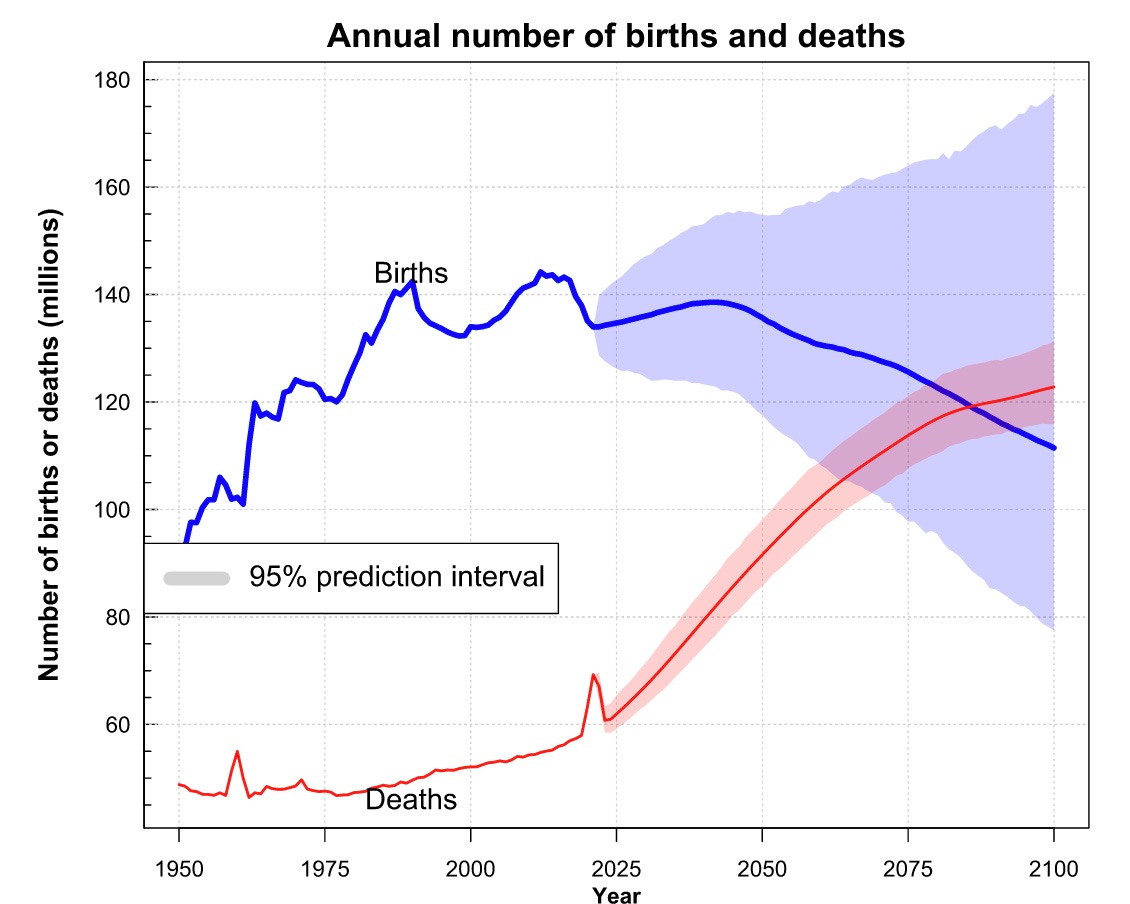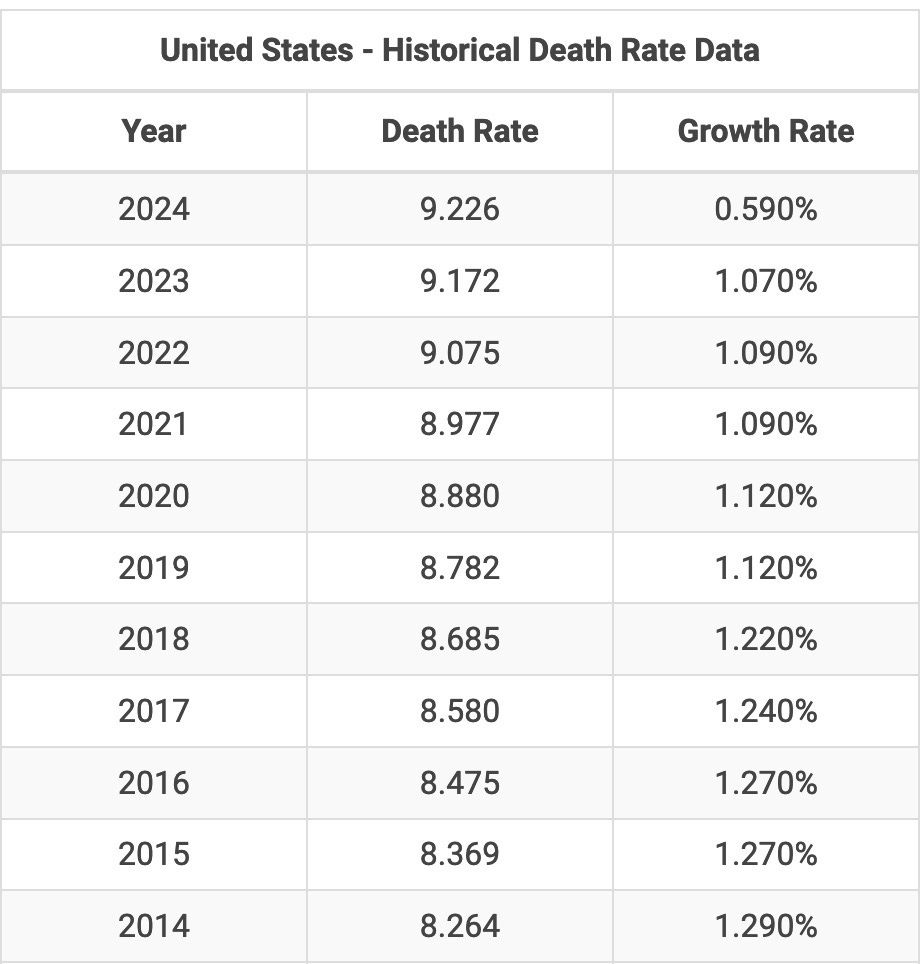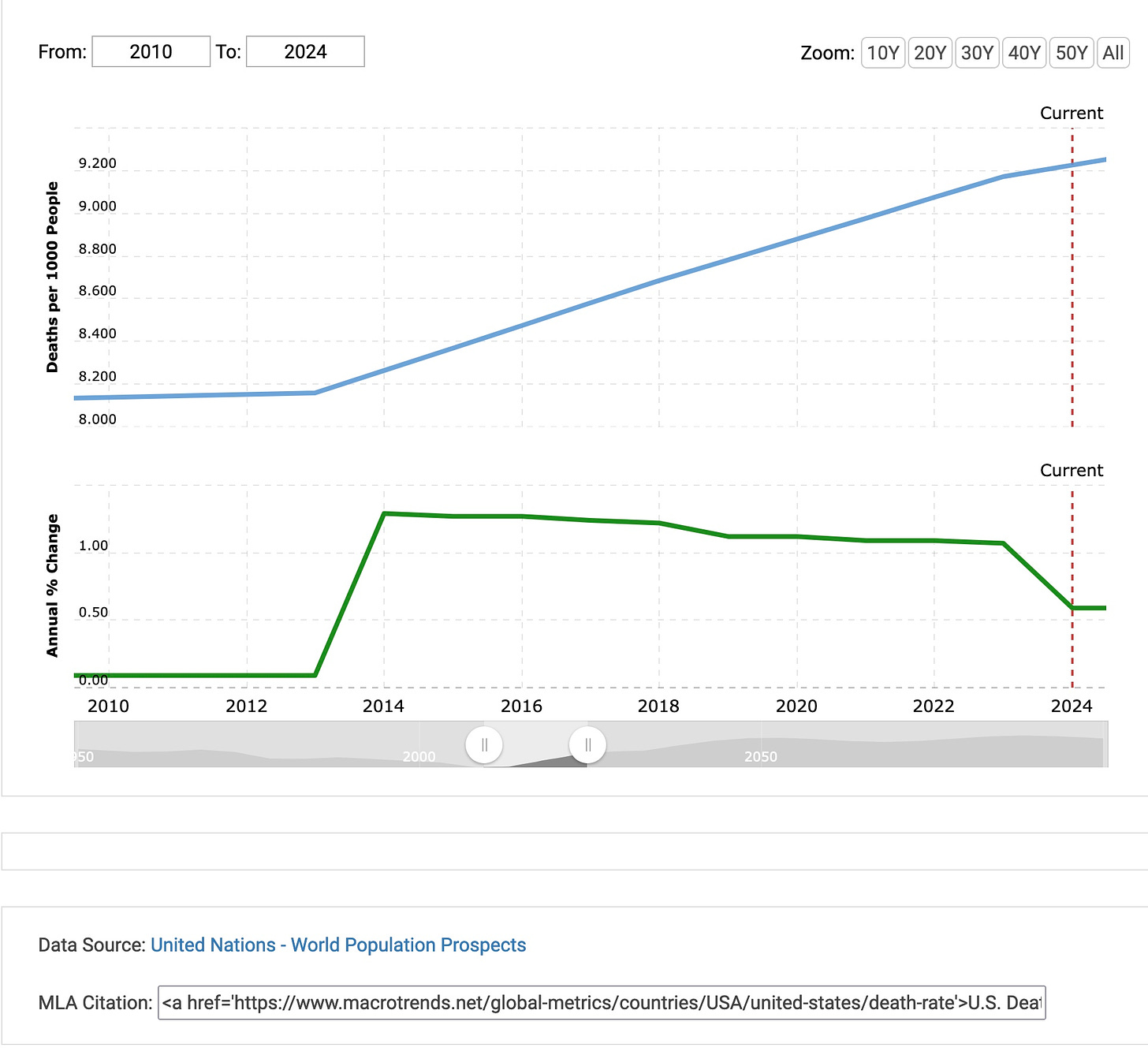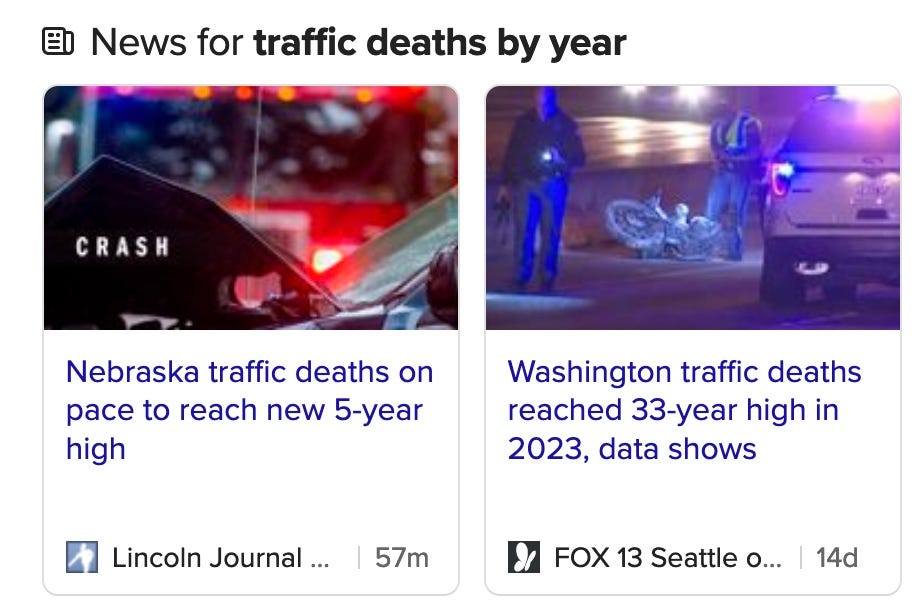Today's lies from the WHO's Director-General, regarding old failed goals
More lipstick on more pigs.
Monday, 27 May 2024
Dear journalists,
Please find the report that will be given by the WHO Director-General at the 77th World Health Assembly today. It is subject to change-please check against delivery.
WHO Media team
---------------------------------------------------------------------------
Honourable Dr Edwin Dikoloti, President of the 77th World Health Assembly,
Excellencies, dear colleagues and friends,
Good afternoon.
I am pleased to present to you my report on your Organization’s work last year.
2023 was a year of many challenges, but also of many achievements.
These achievements are captured in the WHO Results Report, a comprehensive and interactive report available on the WHO website.
It provides a detailed overview of the Secretariat’s work, supported with data, charts, maps, country stories and more.
The report shows where our funding comes from, where it’s going, and what it’s doing. I commend it to you.
Today I can only offer a few highlights, according to each of the “triple billion” targets of the 13th General Programme of Work.
First, healthier populations.
This is the only one of the three targets that we estimate will be met, with 1.5 billion people expected to be enjoying better health and well-being by 2025.
The best way to look at health is to look at mortality rates. And to be fair to the WHO, let’s use the UN numbers:
What I see is an increase in death rates throughout the last decade with a predicted drop this year (looks like a fantastical prediction) and then a massive increase in deaths going forward, with a drop in births. Due to a decline in fertility. How does this correlate with better health?
Here are US mortality rates over time. Note how they have been increasing for the past ten years, well before COVID?
This has been achieved by Member States working across sectors to address the root causes of ill health: unclean air, unhealthy diets, unsafe water, polluted environments, and products that harm health.
Tobacco use is declining in 150 countries, and there are now 19 million fewer smokers globally than there were two years ago.
More than 90 countries increased their tobacco excise tax between 2020 and 2022.
So you charge more for cigarettes and of course there will be a corresponding decline in use. Brilliant!
In December, WHO published a call to action to prevent the uptake of e-cigarettes, along with a technical note on the evidence of the harm they do.
We also see positive trends in our efforts to improve nutrition and healthy diets.
Last year, another 13 countries passed or implemented best-practice policies to eliminate trans fat from their food supply;
Almost half the world’s population is now protected by such policies, compared with just 7% in 2018, when we launched the WHO call for action.
We estimate these policies have cut the number of annual deaths caused by trans fats by two thirds.
With support from WHO, more and more countries are taking action to tackle obesity and child wasting, and to scale up breastfeeding;
And 28 countries increased taxes on alcohol, tobacco or sugary drinks.
We’re also working to make the world’s roads safer.
Over the past decade, 45 countries have reduced road traffic deaths by at least 30%;
And 10 have achieved a reduction of 50% or more: Belarus, Brunei Darussalam, Denmark, Japan, Lithuania, Norway, the Russian Federation, Trinidad and Tobago, the United Arab Emirates and Venezuela.
Let’s see how the post-COVID vaccine US is doing on traffic deaths.
And we’re increasing our work on behavioural science, to understand better why people make decisions about their health.
The better to control you with, my dear, said the Big Bad Wolf.
Following the Health Assembly’s adoption last year of a resolution on behavioural science, we worked with the World Bank to produce a new report showing that while some countries are using behavioural science in policies and planning, it is often fragmented, ad-hoc, and not connected to national health strategies.
While health is a state of complete physical, mental and social well-being, social health has received little attention.
I have therefore launched a Commission on Social Connection to highlight the impact of social isolation and advise me and the world on how to address it.
So there are many reasons for optimism in our work against the determinants of health, even though much more work is required.
Perhaps the greatest threat to health of our time comes from our changing climate.
At COP28 in the UAE last year, an entire day of the programme was dedicated to health for the first time. My thanks to the UAE for its leadership.
149 countries signed the COP28 declaration on climate change and health, and donors committed more than 1 billion US dollars to address the health impacts of climate change.
WHO and the global health community also played a part in keeping a commitment to transition away from fossil fuels in the final agreement.
Meanwhile, we are supporting countries to build more climate-resilient and climate-friendly health systems.
Last year, we supported the electrification of health facilities with solar energy in Somalia, and with UNICEF and Gavi, we started supporting other countries including Uganda, Ethiopia, Zambia, Pakistan and Yemen.
We are also continuing to work with our partners in the Quadripartite to support countries to translate a One Health approach into policy and action.
And at least 63 countries are making progress in the delivery of care to refugees and migrants, and tackling the root causes of ill-health.
For example, Colombia has enacted policies that have enabled 3.5 million migrants to receive health services.
Wonder who pays for that? The UN? Are the migrants en route to the US?
===
Now to the second of the “triple billion” targets: to see one billion more people benefiting from universal health coverage (insurance).
Here, the news is less encouraging.
We estimate that 585 million more people will be covered by essential health services without catastrophic health spending by 2025 – only a little over halfway towards our target of 1 billion.
Although 30% of countries have made progress since 2000 on both service coverage and financial protection, at the global level we’re going backwards on financial protection.
2 billion people face financial hardship due to out-of-pocket health spending.
And half the world’s population is not fully covered by essential health services.
At the second High-Level Meeting on UHC at the UN General Assembly, countries made more than 50 commitments to progressively expand access to essential health services, and to improve financial protection.
To support countries to realise those commitments, WHO is working in more than 120 countries through the UHC Partnership.
We also joined a consortium of multilateral development banks to launch the Health Impact Investment Platform, with funds of 1.5 billion euros to support primary health care projects in countries.
We aim to start making disbursements from September.
Last year, we supported 23 countries to strengthen their health and care workforce.
For example, we are preparing to train nurses and midwives to use of a set of basic emergency care tools that can reduce hospital mortality by up to half.
And with support from WHO, 95 countries made significant progress on infection prevention and control last year, with exceptional examples in Azerbaijan, Kazakhstan, Somalia and Ukraine.
===
2023 was a productive year in WHO’s work supporting access to medicines and other health products.
We prequalified 120 medicines, vaccines, diagnostics and other products last year for HIV, malaria, multidrug-resistant TB, Ebola, polio and COVID-19, as well as the first long-acting insulin analogues;
That means the WHO has made itself an FDA and is essentially issuing licenses for vaccines and drugs for developing countries. Where did the WHO find the expertise to do so? Could it be that staff from the Gates foundation are quietly morphing into drug regulators?
We issued 8 alerts for substandard or falsified medical products;
And we standardized nomenclature for more than 300 cell and gene therapies – it sounds boring, but it’s one of those things that WHO does that no one notices, but which makes a huge difference to researchers, manufacturers and prescribers.
We also continue to support Member States to strengthen their regulatory systems.
We recognized Türkiye’s system as having achieved maturity level 3, and Saudi Arabia’s as level 4.
Singapore, the Republic of Korea and Switzerland were the first three countries to become WHO-Listed Regulatory Authorities, making them “regulators of reference”.
And just last week we listed a further 33 national and regional regulators.
With WHO leadership, opportunities for technology transfer and geographically diversified manufacturing continue to expand.
15 partners joined the mRNA Technology Transfer Programme, and with WHO support, have started expanding the technology pipeline to include new vaccines of regional and global interest
We also established the Global Traditional Medicine Centre in India, and hosted the first global summit on traditional medicine.
===
One of the biggest disruptions caused by the COVID-19 pandemic was to routine immunization programmes in many countries, resulting in backsliding coverage and outbreaks of measles, diphtheria, polio, yellow fever and more.
In April last year, we launched “The Big Catch Up” with UNICEF and Gavi, to support countries to shut down outbreaks and restore immunization programmes at least to pre-pandemic levels.
The idea being to give lots of vaccines to babies at once to have a better shot at damaging them. There are no data to support the safety of giving multiple vaccines at once.
This year, most of the 20 countries with the most children who missed out completely on vaccines during the pandemic are launching and implementing their plans to reach those children.
Meanwhile, the Strategic Advisory Group of Experts on Immunization, SAGE, last year recommended new vaccines for dengue, meningitis, and a second vaccine for malaria, the R21-Matrix M vaccine.
More dangerous vaccines are to be rolled out to those foolish enough to take them, without adequte testing and often without a license. Note the new adjuvants being tested by placing them in vaccines for tropical diseases, not western diseases.









Like I've said for a few years now: Until I see these monsters waddling up to a buffet of bugs and washing their mealworms down with dirty water. Until I see them walk, drive or zoom to their many meetings (instead of private jets, etc). Until I see them living in a modest single family home without any servants. Until I see them stand in line for the SAME "vaccines" they are injecting poor little kids in 3rd world countries with. Until I see them stand in line at the grocery store with others who can now (because of them) barely afford any kind of decent, healthy meats and vegetables. Until I see these arrogant bastards actually *genuinely* sympathize with and live like the average people all over the world, I will never, ever, ever trust one word that comes from their mouths. We are supposed to believe that the less than 1% who openly state there are too many people on the planet, only care about our health and well being while they live like kings with their security, opulent meals and 5 start surroundings at all times? Nah, these people are monsters and I will resist them until the day I die.
“Who controls the past controls the future. Who controls the present controls the past.”
― George Orwell, 1984